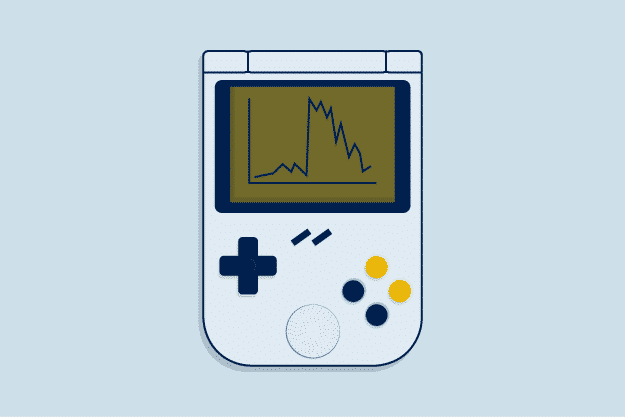The massive rise in GameStop stock that began in mid-January and spiked from January 25-27, caused by participants in the Reddit message board “WallStreetBets,” represents the culmination of markets and investors using alternative data to make gains, while those who were not looking at the right data suffered losses in the billions of dollars.
The attention being paid to this event will likely translate into many changes, and undoubtedly those will include the use of new sources of data and new ways of capturing data, as well as a need to answer difficult regulatory and compliance questions in the U.S.
Harnessing a changing alternative data landscape
The process used by WallStreetBets participants can be called collective intelligence investing (CII). According to analysis by Deloitte, CII derives market insights from data gathered by online communities and crowdsourcing platforms, creating new growth opportunities in investment management. In the wake of GameStop inflicting losses on hedge funds, it’s ironic that hedge funds themselves first developed and made use of CII.
Of four types of alternative data identified in 2019 an analysis from State Street, media sentiment is the closest type to what was used by the GameStop Reddit investors – if you consider Reddit a form of media, albeit not one that is concerned with publicly reporting share price movements. Furthermore, as two of the most popular types of alternative data – sentiment data and crowd-sourced data – are the ones that drove the GameStop stock activity. It wasn’t just the availability of this data, however, that drove the price spike – the power of social media made the views about GameStop as represented by this data, “go viral in minutes,” as Iati wrote.
These circumstances will have numerous repercussions for how markets operate and how data is managed, including the rise of volatility options, more alternative data providers, new artificial intelligence applications to parse all the new data, innovative risk management techniques, new regulation, the aforementioned complicated compliance questions, and most of all, more instances of market activity just like the GameStop incident.
Going forward
WallStreetBets participants are going to keep looking for “soft spots” in hedge fund short portfolios that can be “blown up,” says Thomas Shohfi, a management professor at Rensselaer Polytechnic Institute. On the flip side of this, some alternative data providers, such as Thinknum and SEASAMm are set to capitalize on hedge funds and institutional investors’ need for timely warnings about chatter on social media platforms that can affect certain stocks’ prices.
Beyond just price warnings, several technology companies are bringing out AI offerings to address quantitative trading and risk management as a whole, according to Built In, an online technology community. Built In identifies Kensho, Ayasdi, Alphasense, Kavout and Alpaca, to name just a few of these. The sentiment generated by the WallStreetBets participants created a stream of alternative data. How AI tools will help predict the likelihood for such forum-based reaction, or identify the telltale signs that sentiment is coalescing into meaningful mass action, remains to be seen. Incorporating this into short strategies and risk mitigation will add to the complexity for analysts and risk managers within hedge funds.
No matter how alternative data gets evaluated and analyzed in the future, its perceived value is rising. Alternative data items such as market insights from online communities, and these communities’ sentiment about certain stocks, will be more important now, writes Iati. Data executives and professional traders are going to value this data differently.
Regulatory impact
Aside from concerns about managing the alternative data that contributed to the GameStop trading issues, regulatory compliance fallout is expected. It’s uncertain which way those developments will turn, however.
The U.S. Securities and Exchange Commission does halt trading in the event of extreme volatility (and volatility itself can be a key alternative data point), but did not do so in GameStop’s case. However, the brokers Robinhood and Webull halted trading of GameStop shares. The bigger questions surround the facts that currently institutional firms are not permitted to participate in forums that could affect a stock’s price, as the ACA Compliance Group consultancy explains, because that can amount to market manipulation. It is much harder to charge groups of retail investors with such an offense – although with their demonstrable ability to mobilize en masse, now there might be political calls to do so.
Currently, the SEC awaits confirmation of President Biden’s choice for its new chair, Gary Gensler, who has previously served as chair of the CFTC. The GameStop issue will likely a big focus of his confirmation hearing, which could provide some idea of Gensler’s thoughts on this matter. So far, according to The Hill, Senate Democrats vary between calling for protection of the integrity of securities markets, and protection of hedge funds and institutional investors themselves (this point is particularly surprising to hear from Sen. Elizabeth Warren), while a Republican senator, Pat Toomey, cautions against limiting retail investors use of any available information, which would include alternative data. The protection of retail investors from the risks of being influenced by social media influencers, who might themselves also be retail investors or day traders, looks like a complex arena that will get messy for any regulator who chooses to intervene.
As Tyler Gellasch of the Healthy Markets Institute pointed out in that same article from The Hill, if the Reddit messages about GameStop were between hedge fund managers, they would be deemed illegal coordination or market manipulation. The Reddit WallStreetBets participants may actually be protected from manipulation charges by conducting their actions in public, effectively.
In a way, the issue of how alternative data should be used, as data categories and data management techniques proliferate, has also become central to debate about how to regulate the market.


